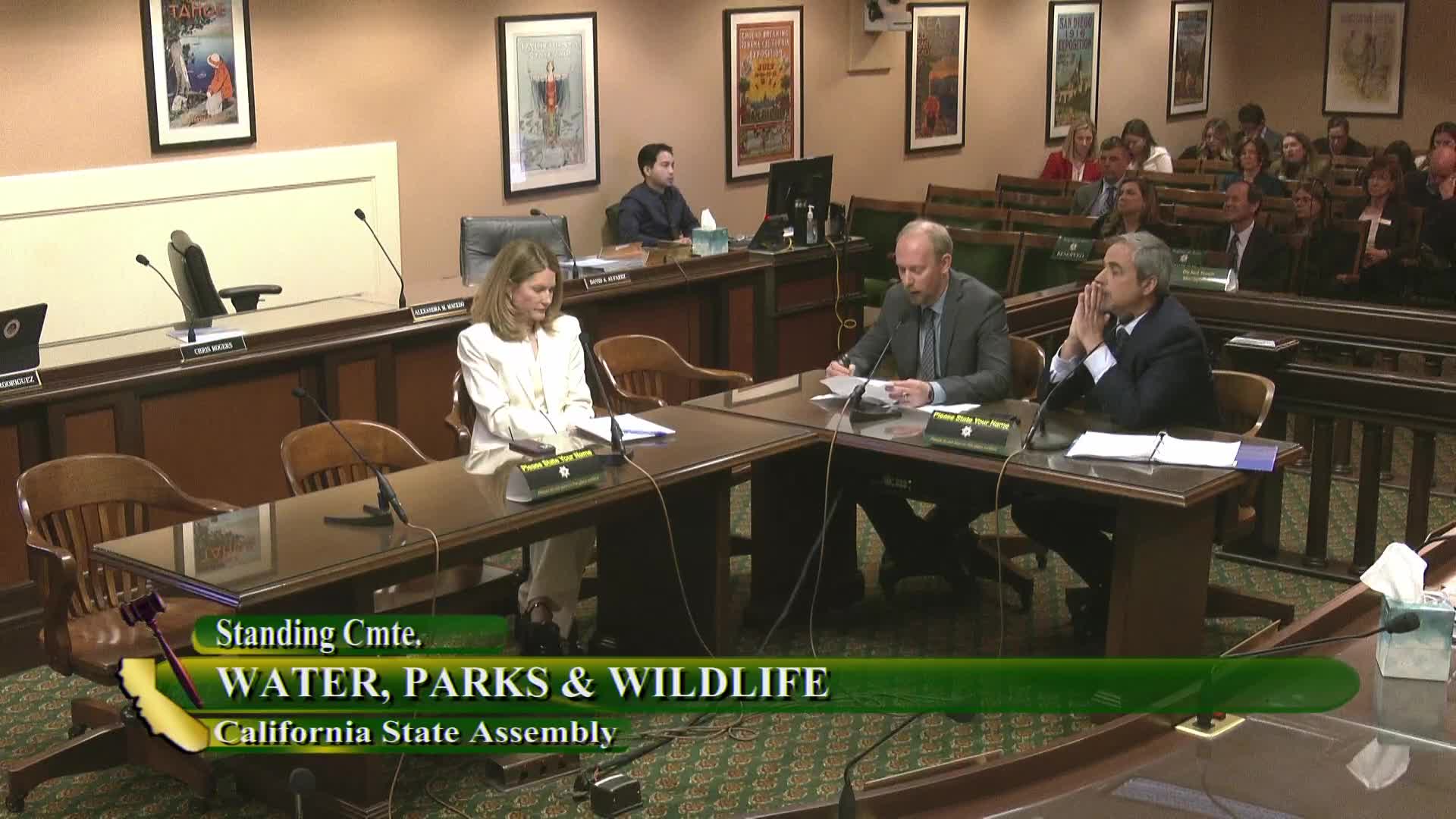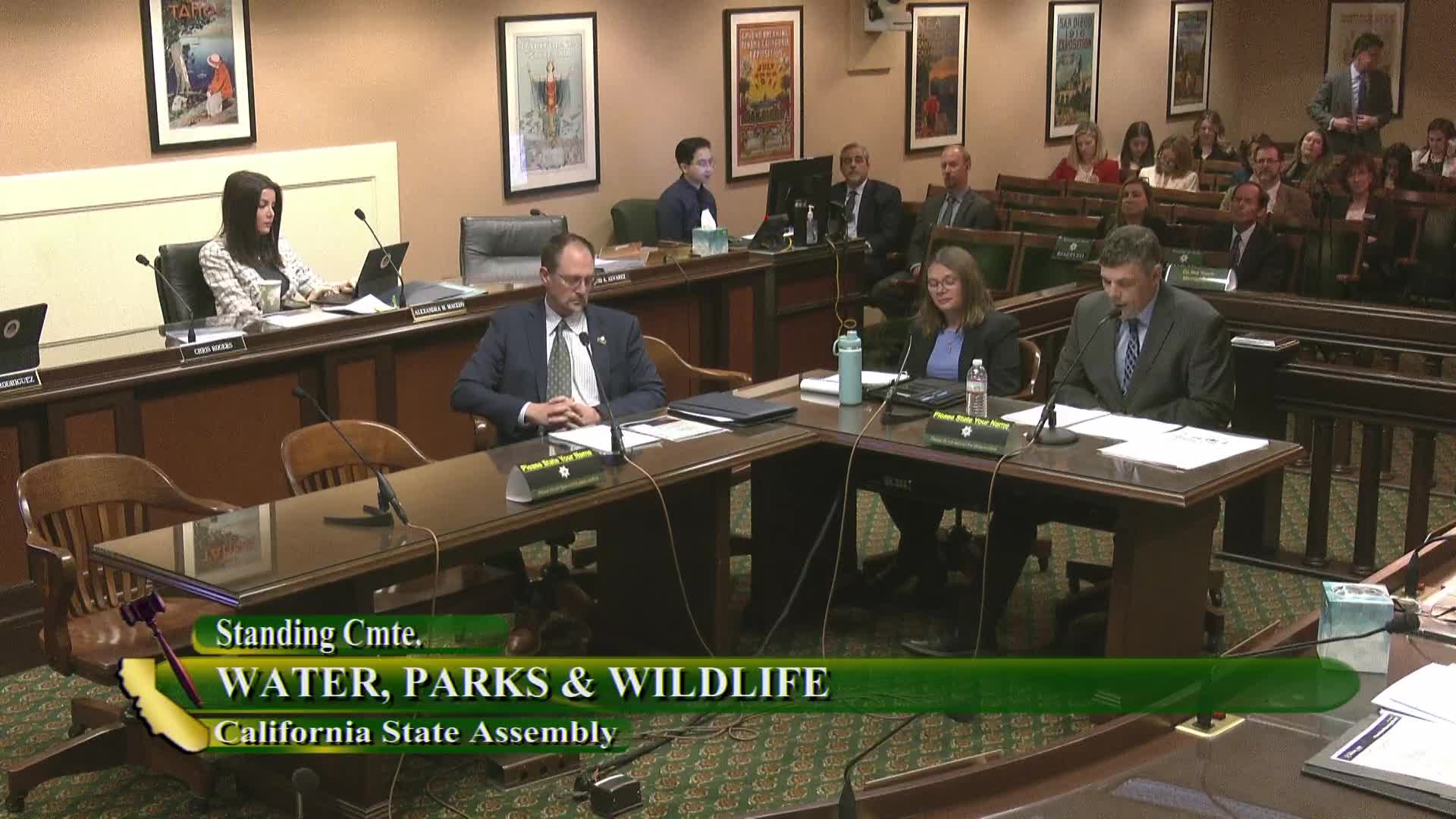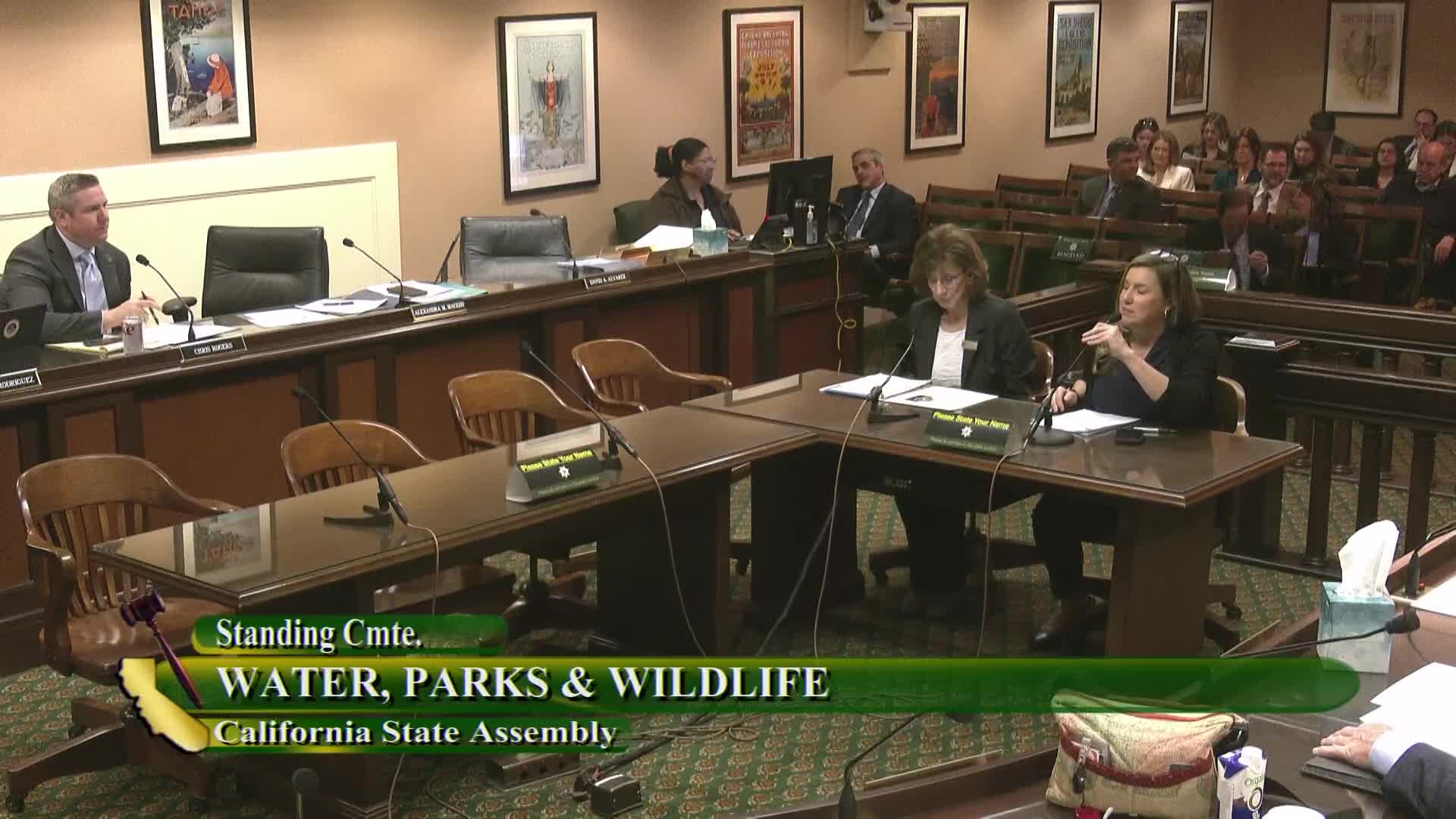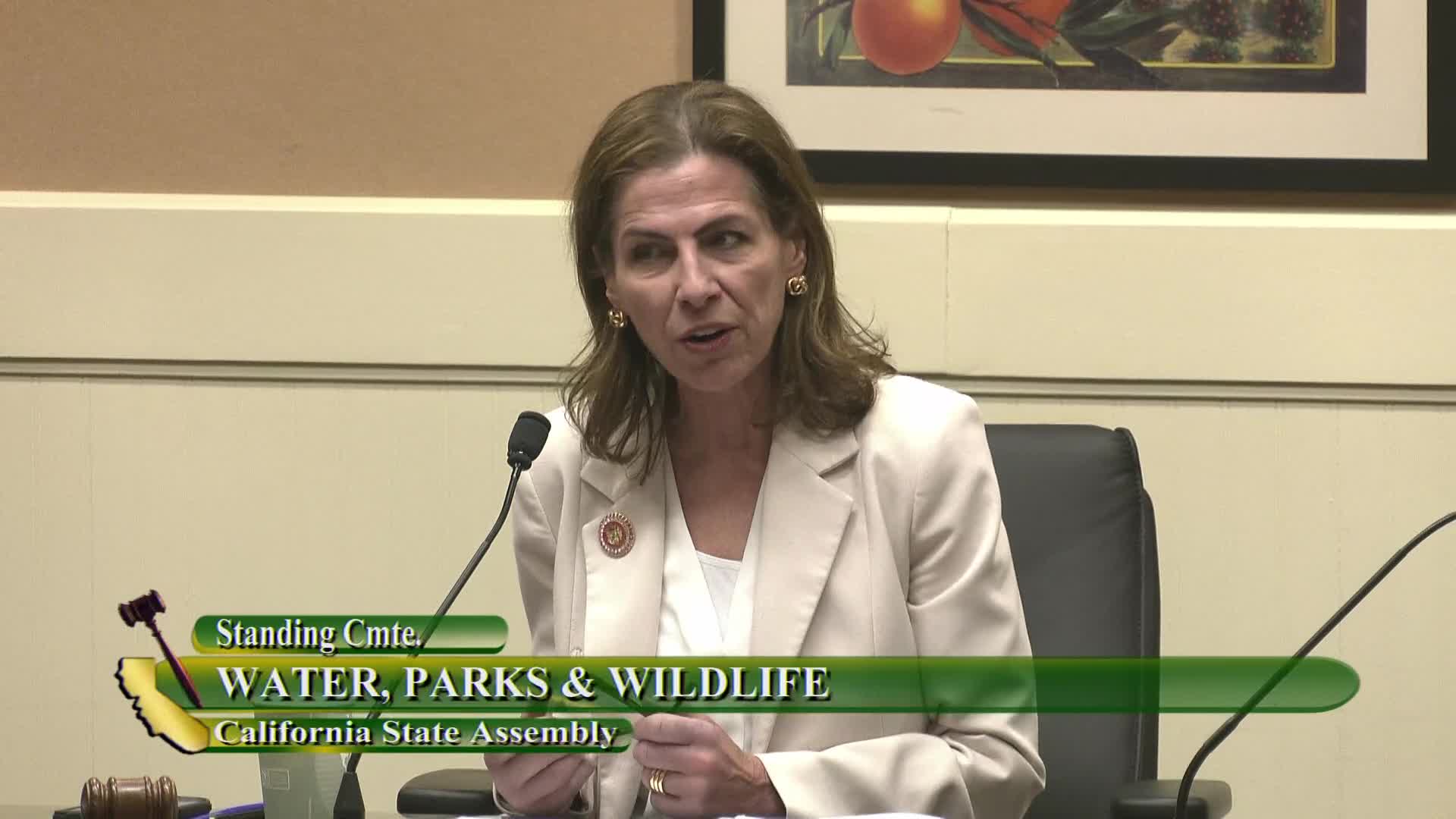Article not found
This article is no longer available. But don't worry—we've gathered other articles that discuss the same topic.

Local managers urge permitting reform, multi‑benefit projects and more stormwater capture to reduce flood risk

Regional agencies urge steady, increased funding for subventions and rehabilitation programs

State agencies and Central Valley Flood Protection Board define roles, liability and planning needs

